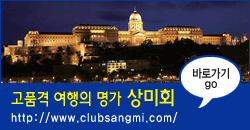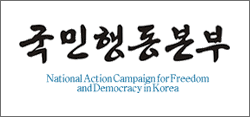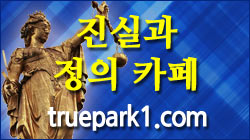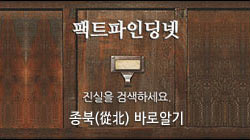by Kim Pyung-woo (Attorney and Former Head of Korea Bar Association)
In 1987, Korea revised its Constitution and the status of the president has weakened considerably due to the implementation of a single, five-year term. The president's re-election is essentially blocked and ends up attaining lame-duck when he or she reaches the fourth year of his or her presidency. On the other hand, members of the unicameral National Assembly enjoy four-year terms and can be re-elected, resulting in longer tenures than the president.
Traditionally, the conservative right and the liberal left have faced off in Korean politics along with the rivalry between residents of the Jeolla and Gyeongsang provinces that resulted in factional strifes that transcend those witnessed during the Chosundynasty. When a charismatic leaders, such as Kim Young-sam and Kim Dae-jung, were president, a presidential government system operated smoothly due to their clout. However, with the disappearance of such charismatic political leaders since President Roh Moo-hyun, the authority and efficiency of the Korean government has continued to decline, as the National Assembly overpowered the president.
In 2004 and 2016, in particular, when left-leaning politicians gained a majority of the seats in the National Assembly, the pendulum of power shifted to parliament. As a result, the opposition party, which took control of the National Assembly, transcended its original mission of keeping the president’s powers in check and was tempted to wrest control of government by seeking to impeach the president or call for his or her resignation.
There are a few legal loopholes that encourage this temptation. One is the so-called “automatic suspension system.” Article 65, Clause 3 of the Constitution stipulates that even if the National Assembly seeks to impeach the president, the president's duties are suspended until the Constitutional Court reaches a ruling. Automatic suspension is a special system in Korea that does not exist in other countries. While the president’s official powers are suspended, the prime minister serves as acting president.
The U.S. does not have measures that strip a president facing impeachment of all of his or her powers. In South America, a president's authority is suspended only if the upper house of parliament authorizes an impeachment filing submitted by the lower house, while the president has the right to go to court to have the impeachment resolution annulled. Korea is modeled on the German system. In Germany, parliament is the plaintiff, while the ruling is made by the constitutional court. In order to suspend the president's powers, parliament must prove the urgency of the motion, chance of winning and suitability. In Germany, however, there is instance of parliament impeaching a president.
According to our Constitution, the National Assembly's impeachment bill is a unilateral accusation of the president. There is no guarantee that the contents of the impeachment bill is true. And there is no guarantee that the rational for impeachment is based on an illegal act. And even if the indictment is legitimate and based on facts, there is still no guarantee that there is a grave enough offense requiring impeachment. The entire decision is up to the Constitutional Court. Yet nobody can be sure of the court's ruling. On top of that, nobody knows how long the impeachment trial will last.
Leaving a leader and supreme military commander responsible for the nation's security in such an unstable state for an extended period of time exposes a country to major risks. It also goes against the constitutionally guaranteed principle of due process that stipulates that an individual is innocent until proven guilty.
Korea's aristocratic class (politicians and their followers) which has traditionally been more interested in factional fighting than on national security and public welfare since the Chosun dynasty, are intent on using the automatic suspension to their fullest benefit. It is of no importance to them whether the rationale for impeachment is valid, against the law or of grave significance or not. They are only interested in suspending the president's official power so they may be able to wrest control of the government. The news media, prosecution and big businesses quickly abandon the president, who appears to have lost all of her powers, and start cozying up to the political opposition. Unfortunately, this is the situation in which Korea has ended up.
If the Constitution did not authorize the suspension of the president’s powers, would the opposition still have pushed ahead with impeachment proceedings in just a week by accusing Park of receiving W70 billion in bribes (including W7.5 billion from Lotte Group)? I don’t think so.
If there was no automatic suspension, opposition lawmakers would not have rushed ahead with an impeachment motion they had no guarantee of winning. There would be nothing to gain. As a result, a flawed automatic suspension system, which does not exist in other countries, instigated the irrational impeachment bill and brought about chaos and confusion in the country.
The next systemic flaw in our country is the absence of a vice president. Countries that have adopted a presidential government system have a vice president (France is the exception by having a powerful prime minister instead of a vice president). A vice president ensures stability of government by assuming power if the president dies, resigns or is impeached. And an American system of having a presidential running mate enables a vice president to continue to uphold the administration's foreign affairs, national security and economic policies resulting in the protection of a government's integrity both internationally and domestically. In other words, there is no risk of loss of confidence in the country due to the death, indictment or resignation of the president. In fact, when U.S. President Richard Nixon resigned as a result of the Watergate scandal, the vice president filled in for the remainder of his presidency and prevented a power vacuum. The same thing happened when eight U.S. presidents, including Franklin D. Roosevelt and John F. Kennedy, died while in office.
In South America, where presidential impeachments happen often, vice presidents assume control preventing a leadership vacuum. Even if a president is impeached, the opposition does not get a chance to gain control of government so the rationale for impeachment is clearly limited to corruption and improprieties involving elections. And the impeachment process usually takes between several months to a year. It is hard to find in other countries events like the ones transpiring in Korea where minor mistakes made by the president become excuses to hold early elections by fueling mass protests and rushed impeachment proceedings. There is nothing to gain from such actions.
But when we revised our Constitution in 1987, we adopted a single, five-year presidential term but made the terrible mistake of failing to require a vice president to serve alongside the president. There is no vice president to assume power if the president dies, resigns or is impeached. As a result, the Constitution stipulated that new elections be held within 60 days after an incumbent president dies, steps down or is impeached (Article 68, Clause 2 of the Constitution). As a result, the death, resignation or impeachment of a president do not end with the actual events, but trigger a 60-day power vacuum and an anomaly known as early presidential elections. More specifically, the opposition, which has gained control of the National Assembly, can be tempted to use even minor mistakes committed by a president to seek his or her resignation or impeachment and call for early elections to wrest control of government. This is at the heart of the campaign that has taken place in Korea since November calling for the president's resignation or impeachment.
What would have happened if our country adopted a vice presidential system like the U.S. or South American countries when we revised our Constitution in 1987? If Park was forced to resign or was impeached by taking the blame for the corruption scandal involving her confidante called Choi Soon-sil, the vice president who also hails from the same political party would have assumed leadership. The next presidential election would have been held as scheduled in December of 2017. The opposition would have had nothing to gain.
Would the opposition parties, candle-light protesters, prosecutors and news media still have joined forces to concoct a ludicrous, W84.5 billion bribery charge to impeach the president? Would they have attempted to target the president for character assassination by citing her actions during the Sewol ferry tragedy that happened two years ago? Would the National Assembly have put the impeachment bill to vote less than a week after formulating the rationale to call for the president’s ouster? And would candle-light protesters be demanding the Constitutional Court to reach a ruling by January?
I don’t think so. As seen in the aristocratic class during the Chosun Dynasty, whose modern-day counterparts are politicians, journalists and prosecutors, lost interest in national security and public welfare a long time ago. Politicians are only interested in power, while journalists are solely focused on dominating public opinion and prosecutors are striving to retain control over investigative powers, so that they can control state affairs to remain in power. These forces will not bother to exert an ounce of energy if there is no guarantee they could grab power. They claim to be patriots, democrats and revolutionaries only on the surface. But they are only interested in power. The beliefs and practices we saw during the Chosun dynasty are being repeated today.
I blame our leadership for creating the automatic suspension of powers, which is not only irrational, but goes against the principle of equality and due process, and gave selfish aristocrats and a unicameral National Assembly an excuse to pursue a rushed impeachment with the temptation of grabbing power in the absence of a vice president to succeed a president who has been restricted to a single, five-year term. Perhaps they are to blame for the unnecessary crisis facing our people and country?
Jan. 2, 2017
만일 이 자동직무정지가 없었어도 야당이 先例(선례)도 증거도 없는 700억 원 뇌물죄(롯데그룹 75억 추가출연금 포함)를 핵심으로 한 탄핵사유를 가지고 일주일 만에 후다닥 朴 대통령에 대한 탄핵소추를 했을까? 나는 아니라고 본다.
한국은 1987년 9차 개헌을 통해 5년 단임 대통령제를 시행하면서부터 대통령의 지위가 많이 약화되었다. 대통령의 再選(재선)이 원천적으로 봉쇄되어 있어 대통령 임기 4년차에 접어들면 완전히 레임덕에 빠진다. 반면에 국회의원들은 單院制(단원제) 의회인데다 임기가 4년으로, 連任(연임)에 아무 제한이 없어 대통령보다 권력을 누리는 기간이 길다.
한국은 전통적으로 보수 右派(우파)와 진보 左派(좌파)가 이념적으로 대립하고, 영호남 지역대립까지 겹쳐, 黨派(당파)싸움이 조선시대 四色黨爭(사색당쟁)을 능가한다. 金泳三(김영삼), 金大中(김대중) 같이 카리스마가 있는 보스(boss)가 대통령일 때는 그래도 대통령의 개인적인 권위 덕분에 대통령 책임제가 작동했다. 그러나 盧武鉉(노무현) 대통령 이후 카리스마 있는 정치보스가 사라지면서 국회가 대통령의 권력을 압도하여 한국 정부의 권위와 능률이 계속 내리막길이다.
특히 2004년 그리고 2016년처럼, 국회를 좌파 성향 정당이 장악하는 소위 與小野大(여소야대)가 되면 권력의 추가 국회로 크게 기울어진다. 그 결과, 국회를 장악한 야당은 본래의 사명인 행정부 견제를 넘어 상대당의 대통령 즉 政敵(정적)을 下野(하야)나 彈劾(탄핵)으로 쓰러뜨리고 행정부까지 장악하여 권력을 극대화하려는 黨爭(당쟁)의 유혹에 빠진다.
이 유혹을 부추기는 법제상의 허점이 몇 개 있다. 하나가 소위 ‘자동직무정지 제도’이다. 국회가 대통령을 訴追(소추)하기만 해도 憲裁(헌재)의 판결시까지 대통령의 직무가 정지된다고 규정한 헌법 제65조 3항이 문제이다. 자동직무정지는 외국의 탄핵제도에 없는 한국의 특이한 제도이다. 대통령 직무정지 기간 중에는 국무총리가 대통령의 직무를 대행하게 된다.
미국은 직무정지 제도가 없다. 파면이냐, 아니냐만 있다. 南美는 下院(하원)의 탄핵고발을 上院(상원)에서 승인하면 파면이 확정되어 그때부터 직무가 정지된다. 대통령은 법원에 탄핵결의 취소청구를 할 수 있다. 우리나라는 독일 제도를 모델로 한 것인데 독일에서는 의회가 고발자이고 결정은 憲裁(헌재)가 내린다. 직무정지하려면 의회가 긴급성, 勝訴(승소) 가능성, 상당성 등의 별도 직무정지 요건을 입증하여야 한다. 단, 독일은 의회가 대통령을 탄핵소추한 사례가 없다.
우리나라 헌법상 국회의 탄핵소추라는 것은 국회의 일방적인 고발장에 불과하다. 고발내용이 사실이라는 보장이 없다. 고발사유가 違法(위법)이라는 보장도 없다. 설사 고발이 사실이고, 違法이라 해도 과연 탄핵을 할 만큼 중대한 위법이라고 장담할 수 없다. 모든 판단은 오로지 헌법재판소의 판결에 달렸다. 그런데 판결 결과는 누구도 장담할 수 없다. 거기다가 헌재의 심판기간이 얼마나 걸릴지 아무도 모른다.
국가의 원수로서 외국에 대하여 나라를 대표하고, 국군 통수권자로서 나라의 안보를 책임지는 대통령의 자리를 이렇게, 장기간 불확실한 代行(대행) 상태로 둔다는 것은 국가적으로 커다란 위기를 만든다. 법률적으로도 유죄 판결시까지 무죄로 추정한다는 헌법상의 적법절차 원칙에 어긋난다.
조선시대부터 국가의 安全(안전)이나, 국민의 福祉(복지)에는 관심 없이 오로지 黨爭(당쟁)에만 몰두하는 유전자를 가지고 있는 한국의 양반계급[정치인과 그 추종자들]이 자동직무정지 제도를 십분 이용한다고 본다. 탄핵사유가 사실이냐, 위법이냐, 중대하냐는 아랑곳하지 않는다. 탄핵소추만 하면 대통령은 직무가 정지되어 힘을 잃으니까 권력싸움에서 기선을 잡는 것이다. 언론과 검찰, 기업은 일단 힘을 잃은 대통령을 버리고 勝者(승자)로 보이는 야당 앞에 엎드려 줄을 선다. 불행히도 이것이 우리가 보는 오늘의 대한민국 현실이다.
만일 이 자동직무정지가 없었어도 야당이 先例(선례)도 증거도 없는 700여억 원 뇌물죄(롯데그룹 75억 추가출연금 포함)를 핵심으로 한 탄핵사유를 가지고 일주일 만에 후다닥 朴 대통령에 대한 탄핵소추를 했을까? 나는 아니라고 본다. 자동직무정지가 없으면 이길지 아닐지 언제 이길지도 모르는 탄핵소추를 무리하게 후다닥 해치워서 얻는 아무 實益(실익)이 없다. 결국 외국에 없는 잘못된 자동직무정지 제도가 무리한 탄핵을 부추겨 나라의 혼란을 불러온 것이다.
다음의 잘못된 제도로는 헌법상 부통령을 두지 않은 것이다. 원래 대통령 책임제를 하는 나라는 미국처럼 부통령을 둔다(프랑스는 예외적으로 부통령 대신에 강한 총리를 두고 있다). 부통령을 두면, 대통령이 사망 또는 下野하거나, 탄핵[파면] 되더라도 부통령이 대통령의 잔여 임기를 승계하므로 정부는 안정을 유지할 수 있다. 미국처럼 ‘동일 티켓제(러닝메이트 제도)’를 실시하면, 부통령이 自黨 대통령의 외교·안보·경제정책을 이어 가므로 국제적으로나, 국내적으로나 정부의 신뢰를 지킬 수 있다. 다시 말해, 대통령 개인의 사망이나, 위법이나 실정 때문에 나라의 신뢰가 떨어지는 위험, 손실을 입지 않는다. 실제로, 미국에서 루즈벨트, 케네디 등 8명의 대통령이 임기 중 사망하였을 때, 또 닉슨 대통령이 워터게이트 사건으로 사임을 했을 때도 같은 당의 부통령이 대통령의 잔여임기를 채워 국정의 공백을 막았다.
대통령 탄핵이 애용되는 남미에서도 대통령이 탄핵으로 쫓겨나면 副統領이 잔여임기를 승계하므로 국정의 공백이 생기지 않는다. 탄핵을 하여 대통령이 물러나도 야당에게 집권 찬스가 오는 것이 아니므로 의회의 탄핵사유는 부정부패, 선거부정 같이 객관적으로 명백한 사유로 한정된다. 절차도 후다닥 해치울 필요가 없어 1년 내지 수개월이다. 한국처럼 대통령의 작은 실수를 가지고 早期大選(조기대선)을 노려 下野 투쟁이나 졸속 탄핵을 하지 않는다. 원천적으로 그렇게 할 실익이 없는 것이다.
그런데 우리나라는 1987년 헌법개정시 5年 單任(단임) 대통령제를 시행하면서 副統領制를 두지 않는 커다란 실수를 했다. 대통령이 사망하거나 下野를 당하거나 탄핵으로 파면되었을 때, 대통령의 잔여 임기를 승계할 부통령이 없다. 그래서 헌법은 대통령이 사망, 下野나 彈劾된 후 60일내에 대통령선거를 실시하도록 규정하였다(헌법 제68조2항). 그 결과, 대통령의 사망, 하야, 탄핵은 원인을 제공한 대통령 개인의 사망, 퇴진으로 끝나지 않고, 60일 간의 국정공백과 早期大選의 변칙 게임을 불러온다. 좀더 구체적으로는, 국회를 장악한 野黨은 대통령의 사소한 실수를 가지고도 下野나 彈劾으로 몰고 가 早期大選(조기대선)을 실시하여, 국회뿐 아니라 대통령의 권력까지 차지하려는 유혹에 빠진다. 이것이 지난 11월부터 두 달간 한국에서 진행된 대통령 하야, 탄핵 캠페인의 속살이다.
만일, 우리나라가 1987년 헌법개정시 미국이나 남미처럼 副統領 제도를 두었더라면 어떻게 되었을까? 설사, 최순실이라는 측근의 비리를 가지고 박 대통령을 下野나 彈劾시켜도 박 대통령과 같은 당의 부통령이 대통령으로 승진하여 대통령이 된다. 大選은 여전히 1년 뒤인 2017년 12월에 치른다. 야당에는 별 실익이 없다.
그래도, 야당과 촛불, 언론, 검찰이 한 덩어리가 되어 845억 뇌물이라는 황당한 탄핵사유를 만들어 朴 대통령을 소추하였을까? 2년 전 세월호 사건으로 朴 대통령을 人格殺人(인격살인) 하였을까? 탄핵사유를 成案(성안)한 후 1주일도 안되어 一瀉千里(일사천리)로 탄핵소추를 끝냈을까? 그리고, 매주 촛불 시위를 하여 1월중에 판결을 내리라고 헌재 재판관을 득달같이 재촉할까?
나는 아니라고 생각한다. 조선의 양반계급들 즉, 오늘날 대한민국의 정치인, 언론, 검찰은 오래 전부터 국가의 안위와 국민의 복지는 안중에 없었다. 오로지, 정치인은 권력을 독점하여, 언론인은 言路(언로)를 독점하여, 검찰은 수사·기소권을 독점하여, 글자 그대로 국정을 농단하여, 평생토록 권력을 누릴 궁리만 해왔다. 그런 이들이, 권력을 잡을 기회가 오는 것도 아닌데, 수고를 할 리가 없다. 겉으로는 애국이다. 민주다, 혁명이다 하지만 속내는 權力慾(권력욕), 財物慾(재물욕)이다. 조선시대 양반들의 四色黨爭(사색당쟁)을 되풀이 하는 것이다.
그런 한국의 양반들에게, 자동직무정지라는 평등원칙·적법절차에도 反하고 합리성도 없는 제도를 만들고, 부통령제도 없이 5年 單任의 대통령제를 만들고, 兩院制(양원제)가 아닌 單院制(단원제) 의회를 만들어, 동서고금에 없는 졸속탄핵의 기회, 결사적인 黨爭(당쟁)의 유혹을 만들어 준 우리나라 지도층의 短見(단견)이 원망스럽다. 오늘날 朴 대통령이 겪는, 아니 이 나라의 국민들이 겪는 災殃(재앙) 즉 정녕 불필요한 수난과 위기는 모두 저들에게 原罪(원죄)가 있는지도 모른다.
(2017.1.2.)












 Kim Pyung-woo
Kim Pyung-woo







 트위터
트위터 페이스북
페이스북 네이버
네이버




























